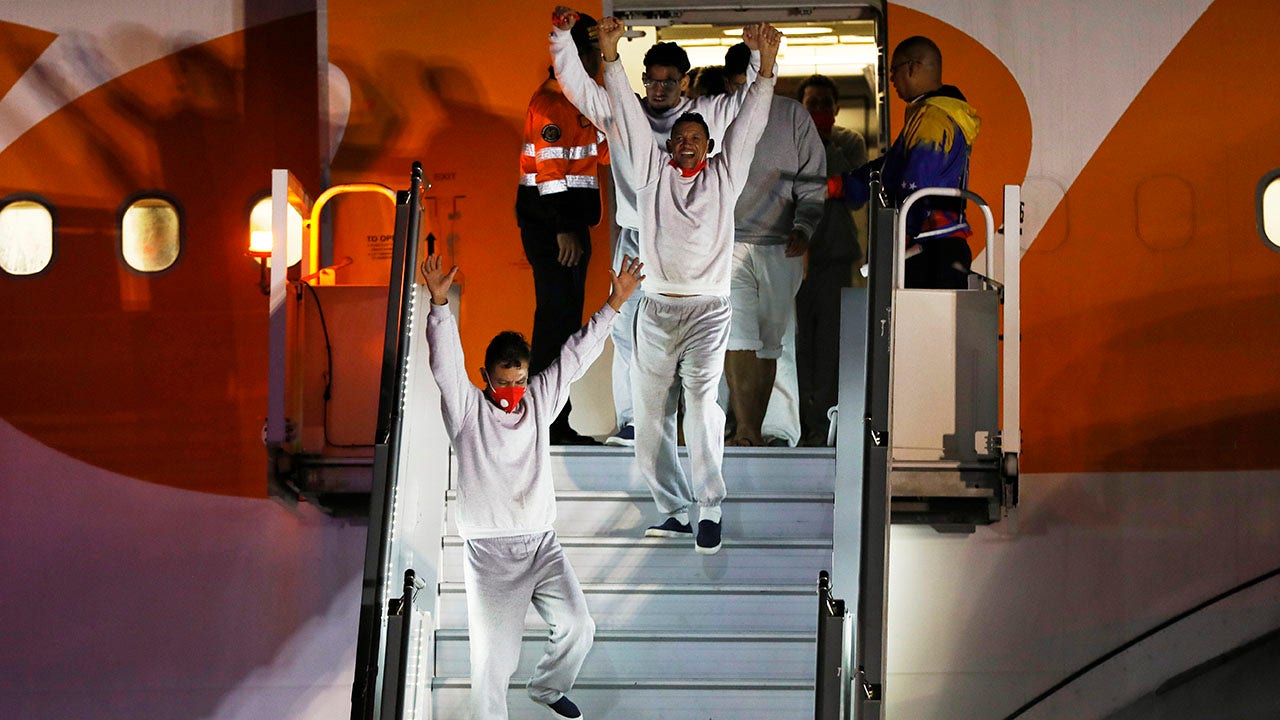The Return Journey: Nearly 200 Venezuelan Migrants Repatriated from Guantánamo Bay
In a significant and heartening development, nearly 200 Venezuelan migrants, who had faced the arduous journey of detention at Guantánamo Bay, have been repatriated to their homeland. This operation not only symbolizes a return to their roots but also underscores the ongoing challenges surrounding immigration policies and the complexities of detainment. The plight of these migrants reflects broader issues in global migration trends, particularly in the context of political and economic instability in their home nation.
The Context of the Detention
Guantánamo Bay, historically known for its controversial detention policies, has been a focal point in discussions about human rights and immigration. The detention of Venezuelan migrants at this facility raised questions about the treatment of individuals seeking refuge from oppressive regimes. Many of these individuals fled Venezuela due to the severe humanitarian crisis characterized by food shortages, hyperinflation, and political turmoil.
The conditions in Venezuela have been dire, with countless citizens facing violence, persecution, and a lack of basic necessities. As a result, many fled in search of safety and stability. However, the journey for these migrants often leads them into perilous situations, including detention in foreign territories like Guantánamo Bay.
The Repatriation Process
The repatriation of these nearly 200 Venezuelan migrants was a complex process involving multiple stakeholders, including the U.S. government, Venezuelan authorities, and international organizations. It is crucial to understand the steps involved in this repatriation, which can often be fraught with challenges.
- Identification and Verification: The first step in the repatriation process is identifying the migrants and verifying their nationality. This can be challenging, especially for individuals who do not possess documents or who may fear returning to their home country.
- Coordination with Governments: The U.S. government worked closely with Venezuelan authorities to ensure that the returnees would be received safely and that their rights would be respected upon arrival.
- Support Services: Upon repatriation, migrants often require various support services, including legal assistance, medical care, and psychological support to help them reintegrate into society.
Challenges Faced by Returnees
While the return of these migrants is a positive development, it does not come without its challenges. Many returnees face significant hurdles as they reintegrate into a society that may not have the resources to support them adequately.
- Economic Hardships: The Venezuelan economy remains in shambles, with rampant inflation and unemployment. Returnees may struggle to find stable employment or access basic necessities.
- Social Stigmatization: Some returnees may face stigma or discrimination upon their return, particularly if they were perceived to have fled the country out of cowardice or betrayal.
- Psychological Trauma: The trauma of detention, coupled with the experiences that led to their migration, can have lasting psychological effects. Access to mental health services is crucial yet often limited.
The Role of International Organizations
International organizations play a vital role in facilitating the repatriation process and providing support to returnees. Agencies such as the United Nations High Commissioner for Refugees (UNHCR) often get involved in ensuring that the rights of migrants are upheld throughout the process.
These organizations can provide:
- Legal Aid: Helping returnees navigate the legal landscape of their home country.
- Reintegration Programs: Offering training and resources to help returnees reintegrate into society.
- Advocacy: Working to raise awareness about the plight of migrants and advocating for better conditions and policies for those affected by migration issues.
Looking Forward: A Hopeful Perspective
Despite the challenges that lie ahead for these nearly 200 Venezuelan migrants, their repatriation is a beacon of hope. It serves as a reminder of the resilience of the human spirit and the importance of community and support in facing adversity.
As the Venezuelan government grapples with its ongoing crisis, it is essential for both domestic and international communities to work together to create a more favorable environment for returnees. This includes:
- Implementing Policies for Stability: The Venezuelan government must focus on policies that promote economic stability and social cohesion.
- Encouraging International Cooperation: Collaborating with other nations to address the root causes of migration and to share the responsibility for supporting those affected by these crises.
- Fostering a Culture of Acceptance: Society must embrace returnees, recognizing their contributions and ensuring they are welcomed back into their communities.
Conclusion: A Journey Towards Healing
The repatriation of nearly 200 Venezuelan migrants from Guantánamo Bay marks a significant turning point in their lives. While the road ahead may be fraught with challenges, it also holds the potential for healing, growth, and a renewed sense of belonging. As the world watches, it is crucial to advocate for policies that not only support these returnees but also address the broader issues of migration and human rights.
In a world that often views migrants through a lens of fear and suspicion, the story of these individuals serves as a reminder of our shared humanity. Their journey back home is not just a physical return; it is a step toward reclaiming their lives, their dignity, and their futures.
See more BBC Express News

